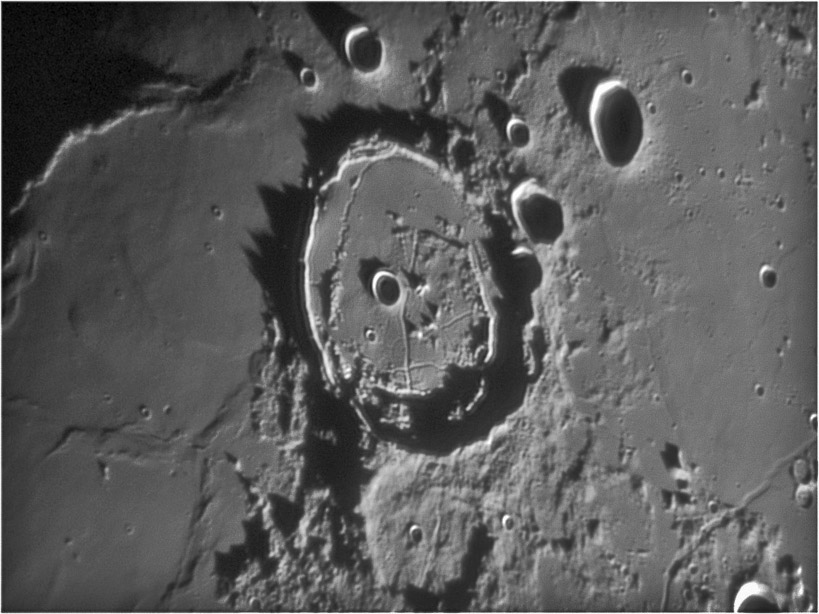
image by Jérôme Grenier
Posidonius may be my most favorite crater on the Moon. It is irresistible just after sunrise when serrated shadows dramatically ring its rim and highlight its floor rilles and hills. My continuing quest is to discover a lava flow on Mare Serenitatis that escaped through the very low spot on the western rim. Jérôme’s lovely image reveals various low swells and bumps on Serentitatis, but nothing traceable to the rim slot. Another intriguing feature to the east (right) of Posidonius is a delicate linear rille that runs approximately north-south. The tiny rille isn’t depicted on Rükl nor on the Orbiter IV image, but has been seen in previous LPODs. In Jérôme’s image a parallel strip of the maria immediately to the east of the rille appears darker than the maria beyond, and in the earlier LPOD I saw a similar feature but speculated that it might be a parallel, but even narrower rille. I still don’t know what it is - someday, perhaps, SMART-1 images will be released that will answer this question.
Technical Details:
22 April 2007, 21:06 UT. Orion Optics (UK) OMC 12″ + barlow 2x + IR pass filter; stacked in Registax. I have stretched this image more than Jérôme did.
Related Links:
Rükl chart 14
Jérôme’s website
Yesterday's LPOD: Necho's Peculiar Rays
Tomorrow's LPOD: Through Radar Glasses
COMMENTS?
Register, Log in, and join in the comments.



